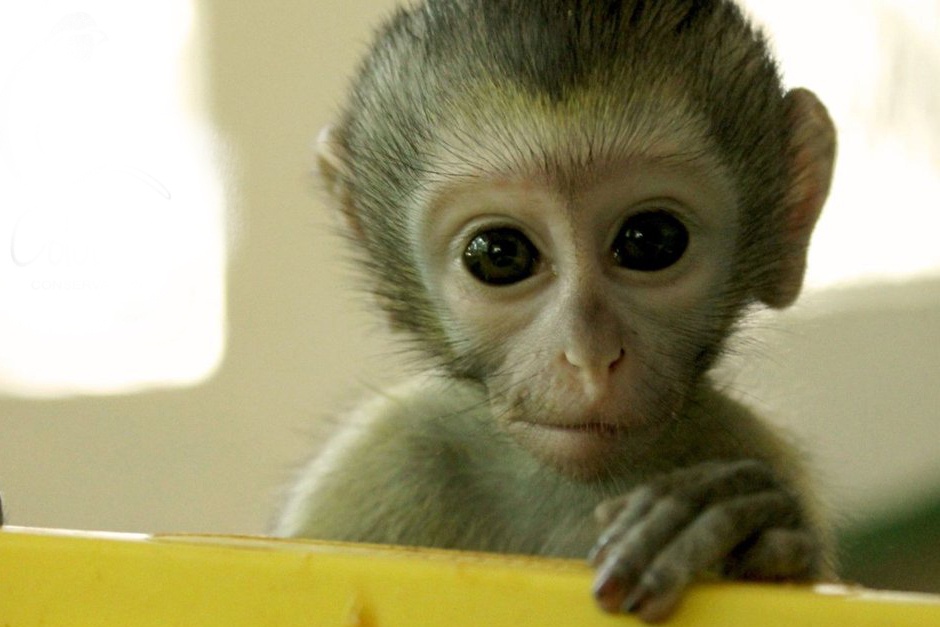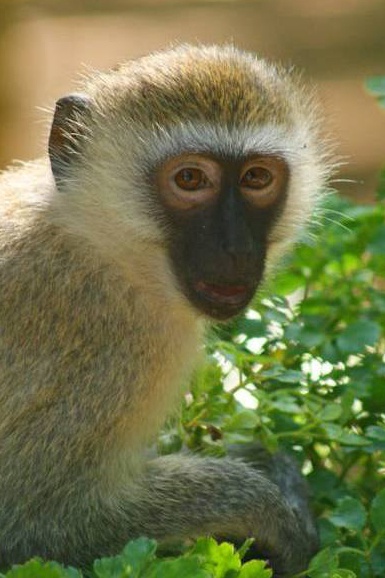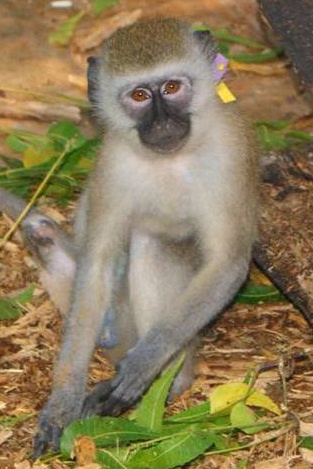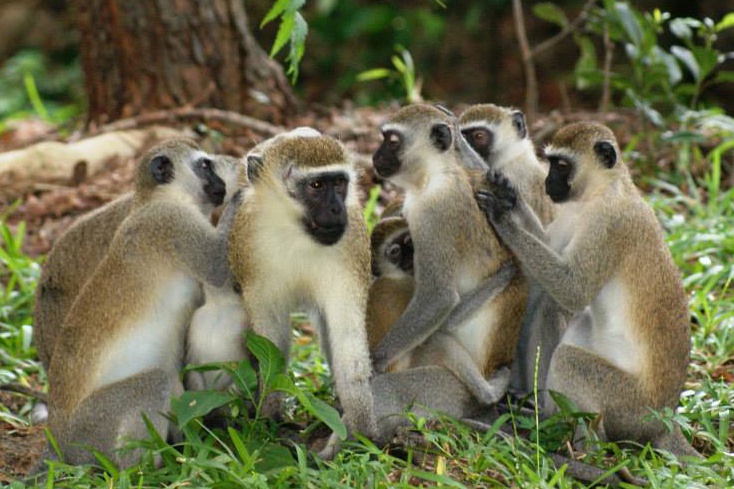23 Vervet Monkeys Need Your Help to Return to the Wild!
The planned release in Kenya’s Shimba Hills National Reserve is both risky and costly. See how you can help.
by Natasha Tworoski
This is an exciting time for Colobus Conservation, a PASA member in Kenya. Next month, a planned release will not only return rehabilitated vervet monkeys to the wild, but also provide invaluable data to help better understand how a monkey troop handles the hurdle of returning to the wild. To make this an exciting opportunity a reality, your help is needed!
Sadly, these rescued monkeys were either taken from their mothers as infants to become pets or were orphaned at a young age. As a result, they missed the critical period where they learn from their mothers, siblings and others in their community about how to thrive in the wild as an adult.
 YATIMA’S STORY … Yatima was found abandoned when she was only two days old! Colobus Conservation’s dedicated staff gave her 24 hour care, and she now lives in an enclosure with other young monkeys. Yatima has developed a close bond with Kilifi who is teaching her how to be a monkey.
YATIMA’S STORY … Yatima was found abandoned when she was only two days old! Colobus Conservation’s dedicated staff gave her 24 hour care, and she now lives in an enclosure with other young monkeys. Yatima has developed a close bond with Kilifi who is teaching her how to be a monkey.
Returning animals to the wild can be a complicated and risky venture, particularly with highly intelligent, social animals. While Colobus Conservation has extensive experience returning monkeys to the wild, the process has many difficulties. Although Colobus Conservation only releases monkeys who are deemed capable of finding their own food, live independently of human interaction, and have formed a cohesive social group, it is a huge challenge for even the experts to prepare these animals for life in the wild.
One valuable way to learn a lot about a wild animal’s behavior is to use a tracking collar, which sends GPS data directly to researchers so they can track their location and progress. In November, Colobus Conservation will return a group of 23 vervet monkeys to the wild and hopes that six of these animals will wear tracking collars. The data obtained from these collars will not only help Colobus Conservation continue to improve their release strategies, but these strategies will be shared globally so organizations everywhere that release primates to the wild will benefit.
Colobus Conservation is currently struggling to find the money needed to buy this technology and still support the rest of the monkeys in their care at the sanctuary. For a sanctuary, finding continued funding to support the monkeys in their care is often a month-to-month challenge, but add the cost of releasing monkeys and it becomes a stressful situation. The release cage and six tracking collars will cost $6,000 USD in total.
Let’s help them to meet their goal by donating today!
Your support is urgently needed to enable Colobus Conservation to return these wonderful monkeys to the wild.
The monkeys will be released in the Shimba Hills National Reserve, in coastal Kenya. With around 75 square miles of habitat, the reserve boasts amazing plant and animal diversity, including a diverse assortment of birds and butterflies. The perfect spot for monkeys to get a second chance!
Click here to meet some of the monkeys you’re helping.
This is just one of the exciting plans on the horizon for Colobus Conservation. In 2018, they will also be returning a colobus monkey group back to the wild and the goal is to use tracking collars for this release as well. These accomplishments will all be in addition to responding to over 150 welfare calls a year, caring for injured monkeys on site, educating the public on how to live well with monkeys and working with the local electricity company to prevent monkey electrocutions. (20% of monkey injuries and fatalities in the area are due to electrocutions.)
Please help these pioneer monkeys get back to the wild, and also help countless other monkeys have a more successful release in the near future. Donate now!

Vervets are one of six monkey species Colobus Conservation works to protect. (Photo courtesy Colobus Conservation.)

Learning how to forage for food is an important part of the rehabilitation process. (Photo courtesy Colobus Conservation.)

Like all monkeys, vervets need a social group to be healthy and happy. (Photo courtesy Colobus Conservation.)
